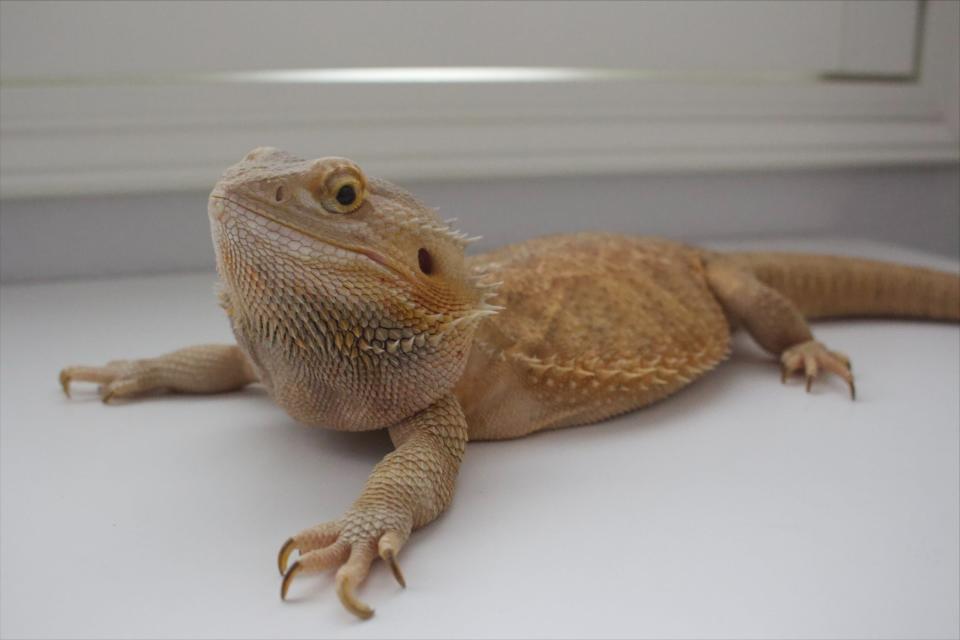CDC says lizards behind salmonella infections: 'Don’t kiss or snuggle your bearded dragon'
At least 44 people in 25 states have gotten sick from a salmonella outbreak, including 15 hospitalizations, and it is linked to a popular reptilian pet: bearded dragons, according to the Centers for Disease Control and Prevention.
The CDC says the outbreak of the strain Salmonella Uganda was first reported on Dec. 24, 2020, and cases have been reported in each of the following 12 months. The ages of those infected range from under 1 to 84; eight of the infections have been in children under 5.
But officials say the true number of sick people is likely higher as people recover from salmonella without medical care. It also takes two to four weeks to determine if a recent illness is part of an outbreak. No deaths have been reported.
Symptoms of salmonella include fever, dizziness, vomiting, diarrhea and dehydration.
The cases are spread throughout the country. Most of them have been in Washington and Wisconsin, each with four, CDC data shows.
Related video: Pepperoni pizza Hot Pockets recalled; may contain glass
Health officials said that of 33 infected people interviewed, 21 said they owned or had touched a bearded dragon and their supplies. On Nov. 19, the Oregon Health Authority tested samples from a sick person's bearded dragon, and it showed the salmonella strain was closely related to what was seen in human infections.
Native to Australia, bearded dragons have become one of the most popular pet lizards across the country. Their name comes from their "beard" of spikes under their chin that will puff up if they feel threatened or unsafe. The beard will also change colors depending on the lizard's mood.
Bearded dragons, like most reptiles, carry salmonella bacteria in their intestinal tract, which they shed into their droppings, according to the Association of Reptilian and Amphibian Veterinarians. It won't affect the "beardie," but coming in contact with it and not properly cleaning afterward can cause people to get sick. Touching or holding a reptile doesn't mean someone will get salmonella unless they are contaminated with feces or the reptile comes in contact with a person's mouth.
There have been past instances where people have gotten salmonella from bearded dragons.
Lettuce recall 2022: Dole recalls salad sold at Walmart, Kroger, Aldi, H-E-B for listeria risk
Ground beef recall 2022: Ground beef sold at Walmart, Kroger, Albertsons recalled for possible E. coli contamination
Recalls you need to know about: Check out USA TODAY's curated database of consumer product recalls for the latest information
The CDC recommends bearded dragon owners or those in contact with them wash their hands thoroughly with soap after touching the pet, feeding it or cleaning its area. They also advise that owners "don't kiss or snuggle your bearded dragon, and don’t eat or drink around it."
If bearded dragons roam around the house, the CDC also recommends cleaning anything they come in contact with and doing it in a laundry sink or bathtub. Health officials add that bearded dragons are not recommended for children under 5 and adults 65 and over, along with people with weakened immune systems.
Follow Jordan Mendoza on Twitter: @jordan_mendoza5.
This article originally appeared on USA TODAY: Bearded dragons linked to salmonella infections in 25 states, CDC says

 Yahoo Movies
Yahoo Movies 

